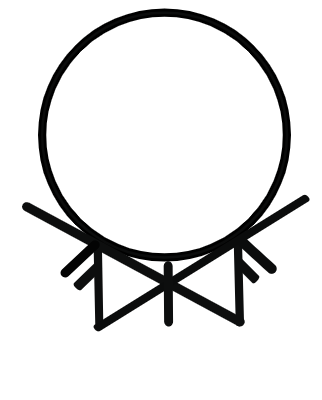Doubt for the Believer
I could have it all wrong.
That’s the truth I have to live in dialogue with at all times, more or less. Many beliefs I hold could be incorrect or untrue in some meaningful ways. Beliefs about the “spirit world”, about animism in a living universe, about the effectiveness of magic, about New Thought theory and techniques, about an afterlife/reincarnation, about what actually helps people — could be off the mark. I could be wrong in some pretty significant ways. After all, I have been wrong in the past.
At the same time, I know this isn’t unique to me or my understanding of the world. Beliefs in a materialist reality, without magick that really works and without the preservation of consciousness after death may also be widely incorrect or untrue. Just because my worldview often differs from the current predominant view, doesn’t mean it’s more likely to be wrong. There are many uncertain things in this world, and only when you assume certainty and hold to it at all costs do you really lose something truly valuable.
Skepticism has its place. Doubt has its virtue. This is the — often uncomfortable — landscape of change and growth. So how do we live with it and even embrace it at times?
Skepticism
I often think of the late Discordian author Robert Anton Wilson when I think about skepticism. One of his more famous ideas is that “what you believe entraps you”. In his book Cosmic Trigger, he wrote “Belief is the death of intelligence. As soon as one believes a doctrine of any sort, or assumes certitude, one stops thinking about that aspect of existence” (just one quote among many of his brain-breaking quotes). After sitting with his ideas for a few years, the most lasting value I’ve found is simply the suggestion: don’t be afraid to doubt yourself. Constantly challenge what you believe, so you may have continual opportunities to learn novel information and grow as people.
But what does skepticism really mean?
The Greek word skeptikos means “inquiry to perpetuate doubt.” Showrunner of Skeptico, Alex Tsakiris said on an episode of AEWCH that a “skeptic does not mean him who doubts, but him who investigates or researches as opposed to him who asserts and thinks that he has found.” Assuming an attitude of skepticism is maintaining that curiosity about — not only the world, but how you see it at any given moment. This enables you to see other things outside of what you expected to see, and eventually foster new perspectives and understandings. Skeptic adepts can rapidly shift beliefs and perspectives to the point where they are holding opposing beliefs in tension simultaneously. This is the internal dialectical dance.
For most people, skepticism has come to mean a staunch adherence to materialism and scientism. A skeptic is someone who doesn’t belief in spiritual things, in psi phenomena, in non-local consciousness, crystals, magick etc. etc. But in essence, this person is a pseudoskeptic, a “believer” in materialism or scientism as the only way to perceive or understand true things about the world. Modern so-called skeptics ascribe to a particular philosophy, rather than seeking to preserve doubt and continuing to question what they know.
To be a truly skeptical person means to evaluate your beliefs sincerely (not just others that aren’t mainstream) and be open to new ways of looking at the world.
Doubt for the Believers
But you may ask: how does it actually work to be skeptical? Belief is a useful and often necessary tool. In fact, the spiritual path is built upon sincerely-held beliefs, even often the maintaining of beliefs against some degree of evidence “proving” alternatives are more correct. And, magick itself is successful when you actually believe in your ability as a practitioner and the efficacy of the working. You have to believe in this stuff for it to work!
Does that mean doubt is not an option for spiritual people and magick users?
I think no — it can’t be a non-option. Spiritual people should foster a degree of preservation of doubt, so they can continue to understand what is true and open themselves to an evolution of understanding. If something is real — like a belief — it can handle the scrutiny. If you find that it’s not real, this isn’t the end of the world or how you relate to the world. It doesn’t mean that your experience or you aren’t valid. It just means that something else is happening and there may be more accurate ways to understand or describe that phenomena. We don’t have to be afraid of changing our minds about something.
In magick, things look a bit different, because belief is a tool for strengthening magick. When you are performing a ritual or thinking about the efficacy of magick that you’ve done in the past, in benefits the practitioner to think it was vastly successful. Many New Thought leaders, such as Neville Goddard, knew the value of shifting beliefs in your favor to empower you and your future actions. So for the functional magickian, it is wise to approach things skeptically within certain time frames, instead of continually. Doubt is a tool that should be applied correctly, as is belief.
We are getting at the art of “occult arts” here. It may be a challenge — but let sincere skepticism be a useful tool for you in your magickal practice, spiritual path seeking, and life overall.

